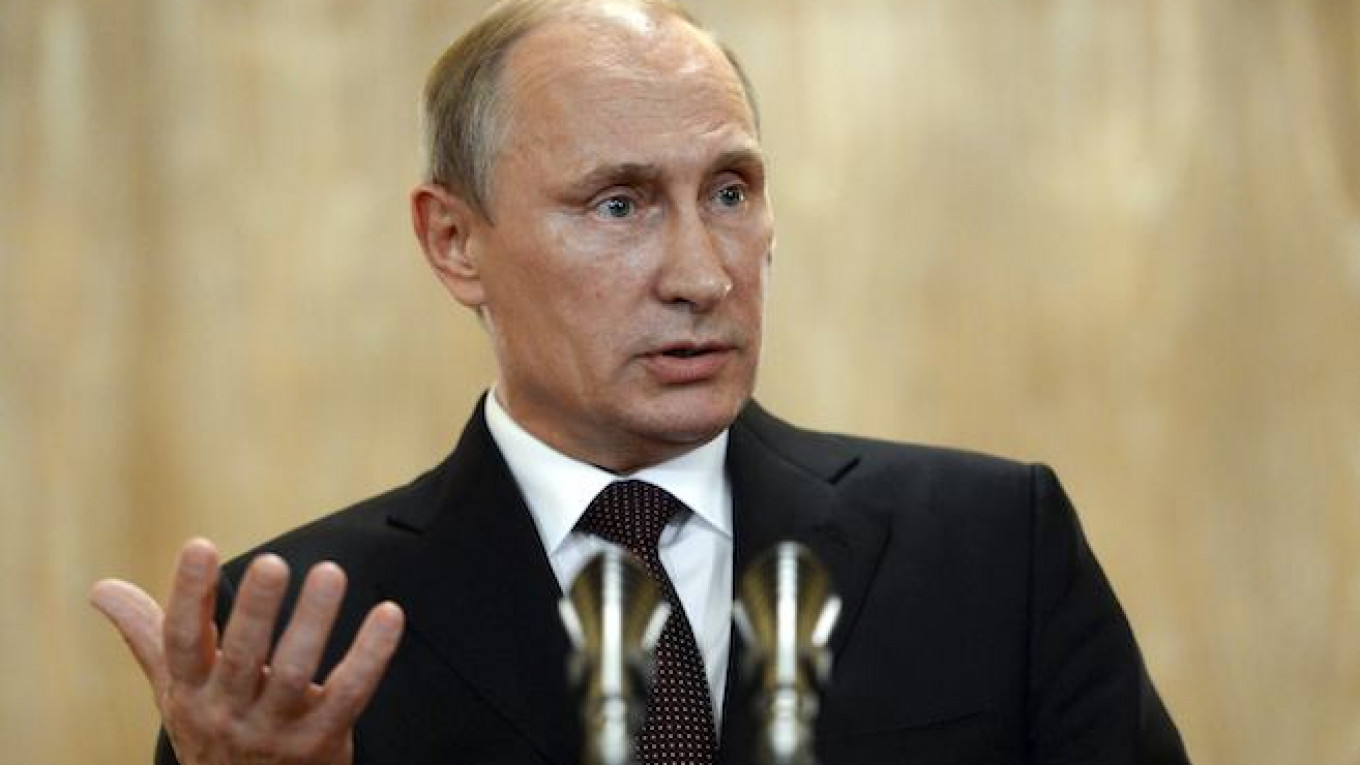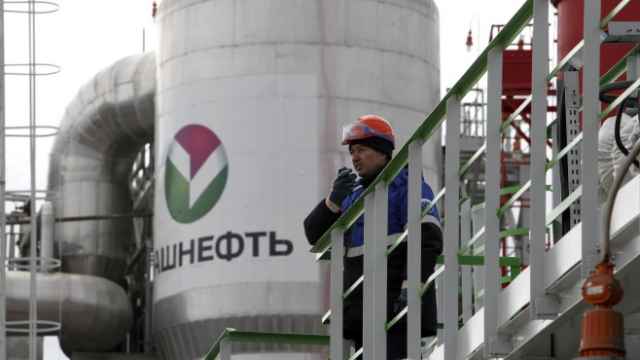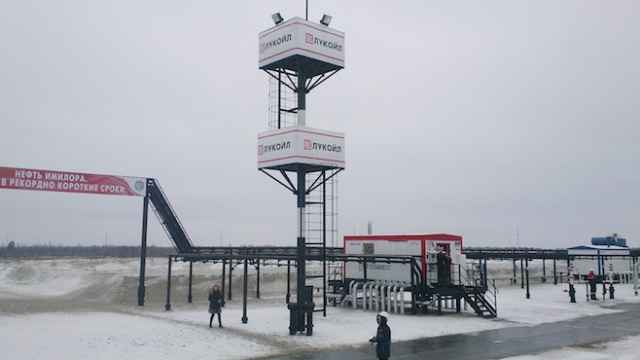President Vladimir Putin has suggested that the fall in global oil prices that is hurting Russia's economy was caused in part by political manipulation.
In an interview with Chinese media published Thursday, Putin did not blame any particular country for the price drop, but some Russian political commentators have depicted it as a U.S.-Saudi plot against Moscow.
"Of course, the obvious reason for the decline in global oil prices is the slowdown in the rate of [global] economic growth, which means energy consumption being reduced in a whole range of countries," Putin said, according to a text released by the Kremlin.
"In addition, a political component is always present in oil prices. Furthermore, at some moments of crisis it starts to feel like it is the politics that prevails in the pricing of energy resources."
The price of Russia's flagship Urals crude oil blend has fallen by about a quarter since the end of June, following the trend in global oil prices.
Trading at over $80 per barrel, it is well below the $114 required to balance the Russian budget. That will further weaken an economy already hurting from Western sanctions over the crisis in Ukraine.
Putin made his comments before going to an Asia-Pacific Economic Cooperation, or APEC, summit in Beijing next week and a meeting of the Group of 20 major economies in Brisbane.
Underlining Russia's growing interest in building ties with Asia to ensure it is not isolated by the Western sanctions, Putin said the Asia-Pacific region was seen by Moscow as an increasingly important energy market.
"The steps taken by us … envisage further diversification of the structure and growth sources of the Russian economy as well as the decrease of over-dependence on the European hydrocarbon market, among other things due to the growth in oil and gas exports to the countries of the Asia-Pacific region."
Major Regional Players
Russia supplies Europe with a third of its natural gas needs. It has already started pumping more oil to China and aims to double the volumes this decade.
Russia's top gas producer, Gazprom, has also agreed to start shipping gas via a pipeline to China from 2019 and to eventually ship up to 38 billion cubic meters a year — more than any single European country is buying from Russia.
Putin said Russia's relations with China had reached "the highest level of comprehensive equitable trust-based partnership and strategic interaction in their entire history."
By contrast, relations with the U.S. are at their lowest ebb since the Cold War because of the crisis in Ukraine.
Both countries are members of APEC and the G20, but Washington says no formal face-to-face talks are scheduled between Putin and U.S. President Barack Obama though they could have an informal conversation on the sidelines.
In a new barb aimed at Obama, Putin criticized the proposed Trans-Pacific Partnership (TPP) free-trade trade pact that the U.S. administration is negotiating with a group of Pacific countries that includes Japan, but not China or Russia.
"Obviously, the Trans-Pacific Partnership is just another U.S. attempt to build an architecture of regional economic cooperation that the U.S. would benefit from," Putin said.
"At the same time, I believe that the absence of two major regional players such as Russia and China in its composition will not promote the establishment of effective trade and economic cooperation."
A Message from The Moscow Times:
Dear readers,
We are facing unprecedented challenges. Russia's Prosecutor General's Office has designated The Moscow Times as an "undesirable" organization, criminalizing our work and putting our staff at risk of prosecution. This follows our earlier unjust labeling as a "foreign agent."
These actions are direct attempts to silence independent journalism in Russia. The authorities claim our work "discredits the decisions of the Russian leadership." We see things differently: we strive to provide accurate, unbiased reporting on Russia.
We, the journalists of The Moscow Times, refuse to be silenced. But to continue our work, we need your help.
Your support, no matter how small, makes a world of difference. If you can, please support us monthly starting from just $2. It's quick to set up, and every contribution makes a significant impact.
By supporting The Moscow Times, you're defending open, independent journalism in the face of repression. Thank you for standing with us.
Remind me later.






